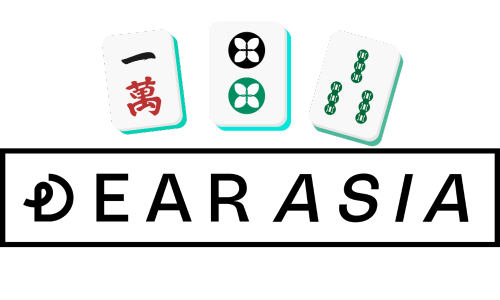What Does It Take to Be a Good Mahjong Instructor?
Mahjong is more than just a tile game, it’s culture, history, math, strategy, and above all, a social ritual. Across China and the world, Mahjong has connected families, friends, and communities for over a century.
But while many people play Mahjong casually, teaching the game is a completely different skill set. A Mahjong instructor is not just someone who knows how to win, they are someone who can break the game down, adapt it to beginners, and help students experience the fun of play while building confidence.
So, what does it take to be a Mahjong instructor? Let’s dive in.
A Deep Understanding of Mahjong Rules
The foundation of being an instructor is expert knowledge of Mahjong rules. This means more than just knowing how to win a hand, an instructor must know:
- The structure of the game (tiles, suits, winds, dragons, flowers, seasons).
- Common hands (Pungs, Chows, Kongs, pairs).
- Special winning conditions and rare combinations.
- Scoring systems, which vary by region.
Since Mahjong has regional variations (Hong Kong style, Shanghai, Beijing, Sichuan, Fujian, etc.), a good instructor should be able to teach at least one style clearly, and ideally understand others well enough to explain differences.
For teaching beginners, most instructors start with Hong Kong / Cantonese Mahjong, as it is the most straightforward style with simpler scoring. From there, students can branch out into more complex regional variations.
Patience and Communication Skills
Mahjong can feel overwhelming at first. With 136 or more tiles, multiple sets, and fast-paced play, new learners often worry they’ll “get it wrong.” This is where a great Mahjong instructor shines.
A strong instructor must:
- Break down the game into small, digestible steps.
- Use clear explanations, avoiding jargon at the start.
- Encourage learners when they make mistakes.
- Create an atmosphere where students feel comfortable asking questions.
In other words, patience and kindness are just as important as knowledge.
#mahjong_dearasia
We know learning Mahjong on your own is hard—and not very fun. Dear Asia is the Mahjong school you’ve been looking for. Based in London, book tickets for our regular Saturday workshops below or hire our private Mahjong instructors.

Ability to Make the Game Fun
Mahjong is a social game at its heart. Families gather during Lunar New Year or weekends not just to compete, but to laugh, chat, and bond over the tiles.
A good instructor understands this cultural role and knows how to make learning fun:
- Using stories or cultural trivia to explain tile meanings.
- Demonstrating how Mahjong is played at gatherings.
- Adding small challenges or practice rounds that feel like games, not exams.
For beginners, fun and confidence come first — strategy and mastery come later.
Cultural Knowledge
Because Mahjong is deeply tied to Chinese culture, an instructor is also a cultural guide. Students often ask questions like:
- Why are there flower tiles?
- What’s the meaning behind dragons or winds?
- Why do families always play during Lunar New Year?
An instructor should be able to answer these questions, sharing the cultural stories that bring Mahjong to life. Teaching Mahjong without culture would be like teaching language without idioms, you’d miss half the picture.
Flexibility to Teach Different Learners
Every student learns differently. Some pick up rules quickly, others need repeated practice. Some learn visually, others need hands-on practice.
A strong Mahjong instructor can adjust to different learners:
- Beginners who’ve never touched a tile.
- Intermediate players who know one style but want to learn another.
- Students who are more interested in the cultural side than competitive play.
This adaptability is what makes an instructor valuable — they don’t just follow a script, they meet students where they are.
Teaching Beyond the Rules: Strategy and Etiquette
Once students grasp the basics, an instructor’s role expands into teaching strategy and etiquette.
Strategy
- Tile efficiency: how to build winning hands faster.
- Reading opponents: watching discards and predicting hands.
- Risk vs. reward: when to go for a big hand, and when to settle for a small one.
Etiquette
Mahjong is not only about winning — it’s about respecting the table. An instructor should teach:
- How to handle tiles properly.
- Table manners (not slamming tiles, keeping the pace).
- Social aspects like joking, storytelling, and keeping the game lively.
This creates well-rounded players who can join any game and be welcomed.
Experience and Practice
No one becomes a Mahjong instructor overnight. Most start as passionate players who slowly move into teaching friends and family, then formal workshops.
Key steps to becoming an instructor include:
- Years of Playing Experience – A deep familiarity with hands, patterns, and strategies.
- Explaining to Beginners – Testing teaching skills informally with friends.
- Learning Multiple Styles – Understanding at least one regional system thoroughly, but having awareness of others.
- Experience in Teaching – Someone who is already a teacher as profession and experience teaching group classes
Mahjong Instructor: Like a Teacher in Every Way
Being a Mahjong instructor is very similar to being a teacher. Just like in a classroom, a good instructor needs patience, clear explanations, adaptability, and the ability to make learning engaging. They guide students step by step, ensure everyone understands the basics, and help learners gain confidence before moving on to more advanced strategies.
Our instructor embodies all of these qualities, as they are already a teacher at our school. Their experience in teaching languages has honed their ability to explain complex concepts clearly and adapt to different learning styles. Combined with a deep passion for Mahjong, they bring expertise, patience, and enthusiasm to every session. This background gives them unique skills in teaching, explaining complex ideas clearly, and adapting to different learning styles. Whether you’re a complete beginner or looking to refine your skills, join our mahjong workshop led by our professional mahjong instructor.







